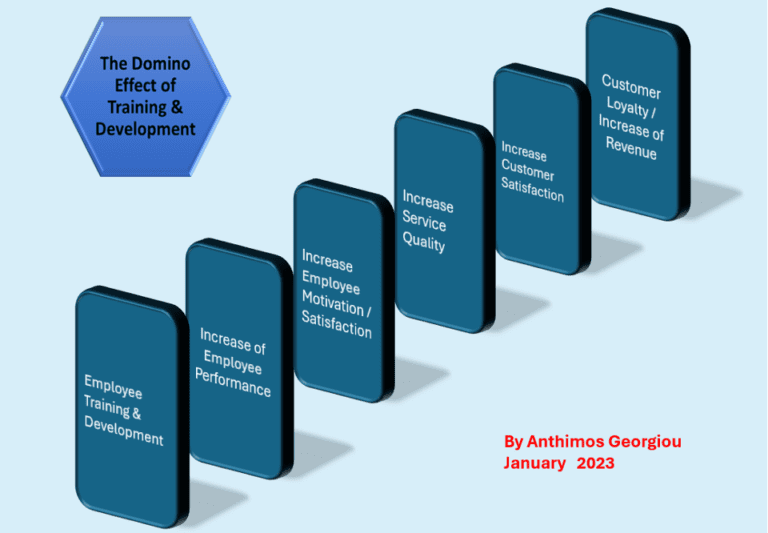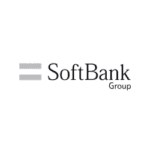The competition in the hospitality and food and beverage industries is growing fast and to be successful and viable in these current tough times, hotels and restaurants have to adopt training and development strategies for their employees and managers.
There is a big debate about the cost of training and development and if it really pays off. Companies need to be competitive in the market, therefore they need to invest in T&D because of the impact that will have not only on employees, but also customers.
After many years of experience working in the hotel and restaurant industry, teaching University modules, and being a certified Train the Trainer educator, this model was created which showcases the importance, the connection, and the trigger effect of employee T&D on employee satisfaction and eventually customer satisfaction and loyalty.

The trigger effect of the model starts with Employee T&D.
-
Employee T&D
Everything starts with companies and their leaders spending time, money and effort to adequately train and develop their employees. This is the first and most important step in the process because the employees will acquire hard and soft skills that will help them perform their duties at work. This training is essential because the employees will receive training on the tasks and the responsibilities that they need to have for the job.
-
Increase of employee performance
As soon as the employees are trained and educated, they will perform better because they will have the acquired expertise and abilities to match the job specification of their position. This will also help them to achieve higher efficiency and intensified performance since they have been guided and trained by their managers and leaders on the job.
-
Increase of employee motivation/satisfaction
As soon as the employees have more knowledge and competencies on the duties that they need to execute, they will feel confident, motivated and satisfied. Employees that have been trained in an organization will feel appreciated and at the end will remain loyal to the organization. Employee loyalty is very important in organizations because companies will have a higher employee retention rate and a lower employee turnover.
-
Increase of service quality
A new trigger will happen when staff receives new competencies and newly developed skills. As the employees become more confident, motivated and appreciated at work, the trigger will push employees to higher performance and at the same time the quality of the service will be advanced to higher levels.
-
Increase of customer satisfaction
The elevation of service quality by the newly trained employees will have an impact on customer service and customer satisfaction. Customers will receive an updated, more consistent and elevated service that will lead to service satisfaction. At this level, the service will exceed customer expectations and at the same time the value received by guests will surpass the money paid.
-
Customer loyalty/increase of revenue
The last trigger of this domino effect is the guest loyalty. Customers are always looking for quality, effective, efficient and consistent service in order to be satisfied. Customer satisfaction is the outcome that all businesses should be attempting to reach. Customer satisfaction will also lead to customer loyalty, which is the cornerstone for every company. Loyal customers are the best promoters of establishment and brands through Word of Mouth and in current times through E-Word of Mouth. There is no marketing cost when Hotels, Restaurants and Bars work with loyal customers.
Investing in T&D is crucial because the return on investment will be realistic. The hospitality industry is a people’s industry and there is a need for the employees to be always trained and developed. Responsible for the T&D of employees is the leader, and a true leader is the one that cares about the people and the tasks equally. Recognizing the importance of education and utilizing different styles of teaching will eventually motivate the employees to higher performance and will lead to higher customer satisfaction and loyalty.




















